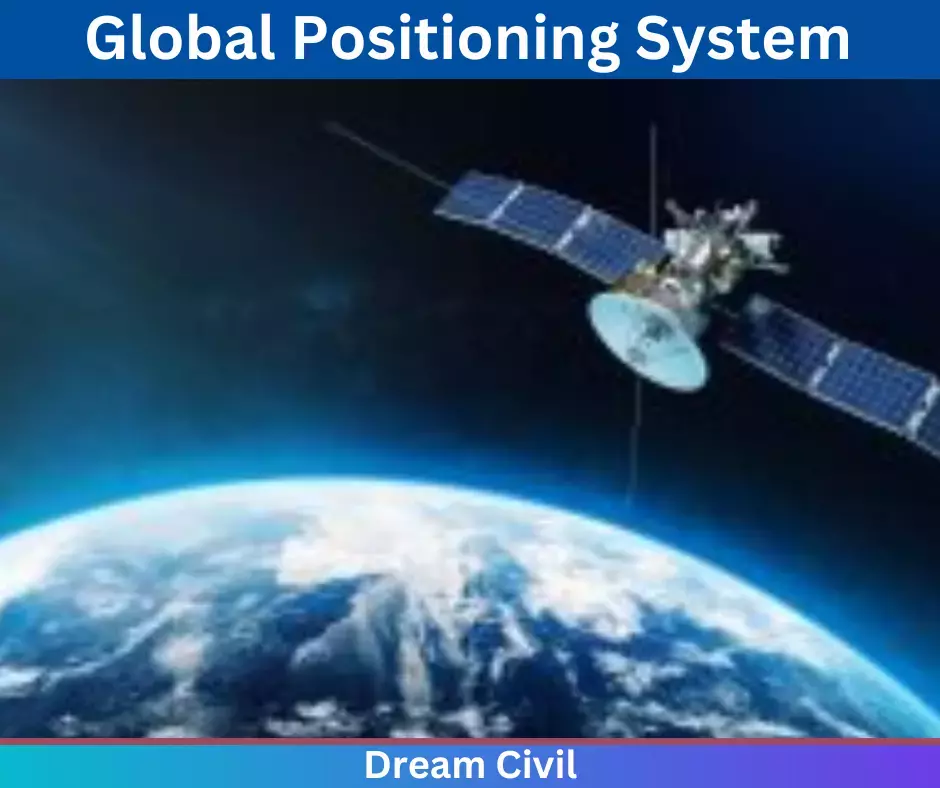Table of Contents
In this article, we will discuss the global positioning system.
| Global Positioning System (GPS), also known as Navstar GPS, is a satellite-based radio navigation system owned by the United States government and operated by the United States Air Force. |
The GPS project was launched in the US in 1973 to overcome the limitations of the previous navigation system. It was initially developed for use by the united states military and became fully operational in 1995.
Civilian use was allowed from 1980. It is a global navigation satellite system that provides geolocation and time information to a GPS receiver in all weather conditions, anywhere on or near the Earth where there is an unobstructed line of sight to four or more GPS satellites.
The GPS doesn’t require the user to transmit any data, and it operates of any telephonic or internet reception, though these can enhance the usefulness of the GPS positioning information and provide critical positioning capabilities to military, civil, and commercial users around the world. The United States created the system, maintains it, and makes it freely accessible to anyone with a GPS receiver.

1. Uses of Global Positioning System
1. Surveying
a. For mapping and measuring various measures on the earth’s surface and underwater.
b. For determining land boundaries, mapping sea floors, and highlighting the changes in the shape of structures.
c. For the collection of data of specific profiles, cross-sections, boundaries, and generating contour map.
d. For stakeout and layout work.
e. For establishing a benchmark at the beginning of survey works and also checking the position of station points.
2. Marine
GPS is also required in the marine departments since it is used to map and position dredging operations in rivers, sandbars, and wharves to ensure that other boats are aware of how deep they should get.
3. Farming
GPS has high accuracy which makes it suitable for use in mapping soil sample locations, and the farmers can locate the areas that have soils suitable for farming. it can also be used for proper fertilizing and watering purposes.
4. Military
The US Department of Defense was the first to develop the GPS app system, and since then the system has been adopted by numerous military forces around the world. It can be used to map the location of vehicles and other machinery such as missiles during a war. This is a technique used purposely to protect the soldiers and also manage resources.
5. Geo-Mapping and Landmarking
This system provides integrated and accurate landmarking and mapping information. It is known to be highly accurate and faster than any, conventional strategy. There is minimal labour required and less mount equipment to be used.
6. Telecommunication
Telecommunications especially mobile telephones use this app to provide its users with accuracy, reliability, and stability of operations. Although other clocks can provide this, the GPS supports the derivation of synchronized time zones with the help of satellite signals.
7. Road Transportation
The majority of users of this technology are that services, emergency vehicle location, commercial fleet management, freight tracking, public transport monitoring, dispatch, and navigation. Private car owners also use the app, and most of the new car models come with a factory-fitted GPS.
8. Photogrammetry, Remote sensing, and GIS
Along with the enhancement of ease and versatility of spatial data acquisition by GPS technology, it is integrated with geographic information systems and Remote sensing (RS) with a much-diversified approach.
GPS can be integrated with RS and GIS to yield applications in various fields like precision farming and environmental modelling; Disaster mitigation, Fnlergent-v response, mobile mapping, etc.
9. Locating positions
The GPS navigation system is commonly used to designate positions. It is used by travellers, researchers, and everyday citizens.
3. Advantages of Global Positioning System
a. Navigation
b. Low-Cost
c. Crime and Security
d. Easy to Use
e. Employer Monitoring
f. Safety Neighborhood Search
g. Traffic and Weather Alerts
h. Available Anywhere
i. Updated and Maintained
j. Exercise Monitoring
k. Flexible Navigation
l. Military Usage
m. Surveying
n. Buildings and Earthquakes
4. Disadvantages of the Global Positioning System
The disadvantages of the GPS are as follows:
a. You need a smart electronic device.
b. Drain off the battery quickly
c. GPS doesn’t penetrate solid walls or structures.
| Read Also: Photogrammetry |

